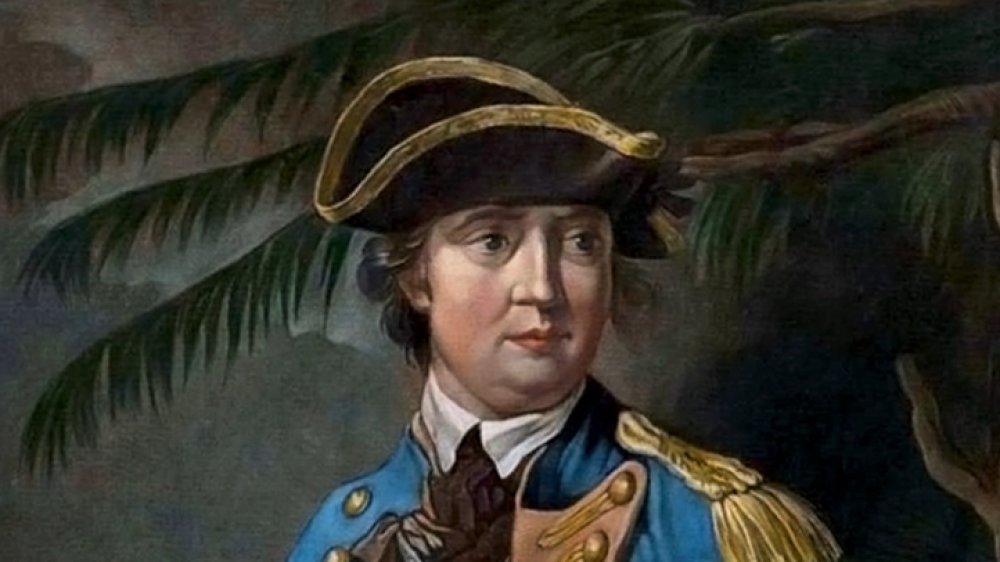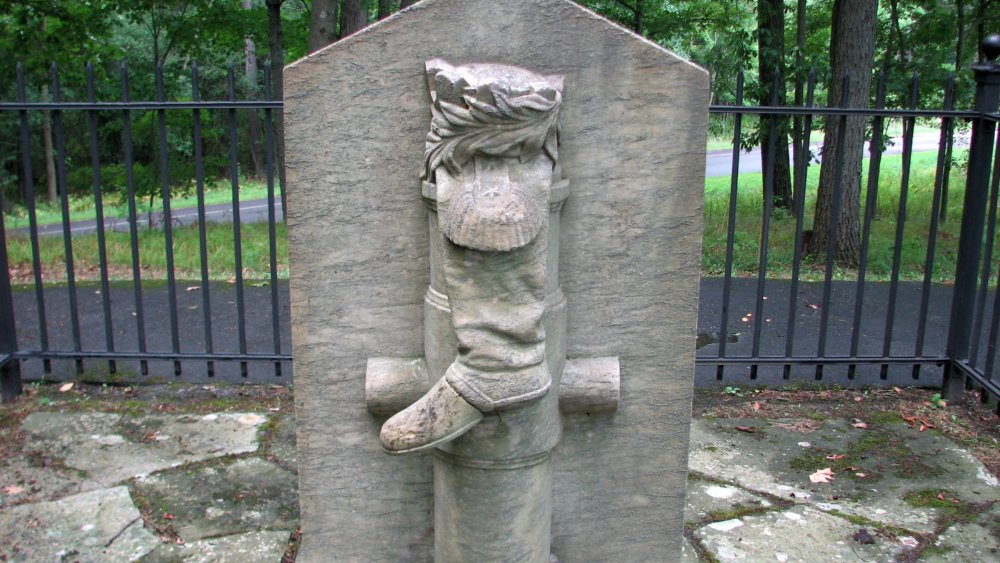Why Did Benedict Arnold Really Betray The Americans?
The Saratoga National Historical Park in New York is home to an unorthodox monument to a boot. History explains that this "Boot Monument" commemorates leg wounds that Benedict Arnold sustained at the Battle of Saratoga. It even calls him a "brilliant soldier." Nowadays, the assertion that Arnold should be hailed as a war hero probably wouldn't have a leg to stand on among the vast majority of Americans. After all, this soldier stabbed his brothers in arms in the back by aligning with the British. But as Time rightly points out, he actually committed treason twice.
Arnold committed his first act of treason alongside George Washington and other revolutionaries in the colonies. It's strange to think of Washington as a traitor, but not only did he help lead the charge against King George III in violation of England's Treason Act, but he committed tree-son when he chopped down his daddy's cherry tree. You might vehemently object to that framing. After all, the whole tree thing never happened and was just a lie propagated to make George Washington sound honest. Meanwhile, characterizing the American Revolution as a traitorous uprising against England ignores the fact that colonists justifiably wanted independence from a dictatorial system of government. Similarly, Benedict Arnold's reasons for betraying the Americans may have seemed justified in his own mind.
Benedict Arnold was a turncoat turned redcoat
The 1777 Battle of Saratoga left Benedict Arnold "with a permanent limp and one leg that was two inches shorter than the other," per History. He had previously injured that same leg while attempting to overtake the British in Quebec. In addition to demonstrating his mettle on the battlefield, he created one of the first American naval fleets and was regarded by the British Secretary of State Lord Germaine as "the most enterprising and dangerous" American generals. So what caused him to deflect?
Love, money, and the love of money helped push Arnold into the arms of the British. He also had an enormous chip on his shoulder. According to Smithsonian, Arnold descended from "the Rhode Island equivalent of royalty." But his alcoholic father squandered the goodwill his family built up. This made Arnold sensitive to disrespect, and he felt super dissed when he junior soldiers got promoted ahead of him. He also felt fellow soldiers stole credit for his battlefield achievements.
It certainly didn't help that Arnold's second wife, Peggy, was the daughter of a British loyalist. Arnold wanted to give his wife the life he felt she deserved but had lost a ton of money during the war. So it was probably a huge incentive when the British offered him 20,000 pounds to switch sides. Time notes a more noble motivation. Patriot POWs were dying in droves from disease, and Arnold seemed intent on preventing a long, costly civil war. Furthermore, the British had gone easy on captured colonists, opting not to hang them, whereas Americans were hanging Quakers and British loyalists. Arnold also became the target of a smear campaign by an ambitious attorney general and began to see the revolution as a failed endeavor and the Continental Congress as a "farce" filled with treacherous hypocrites. In his mind, he might not have been betraying America but saving it from itself.

